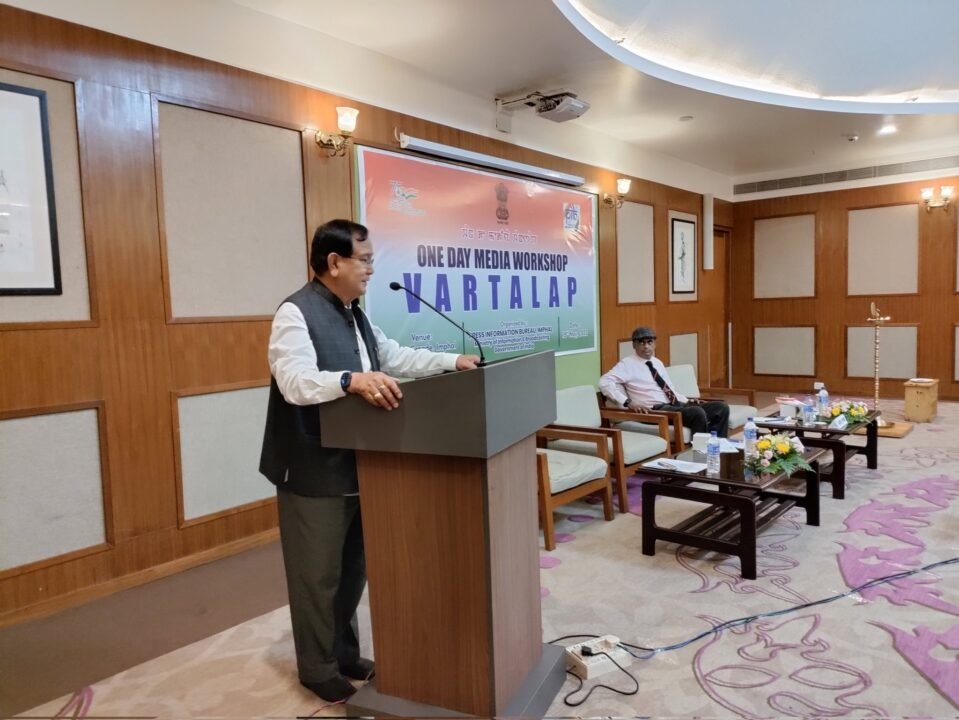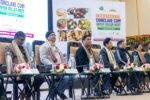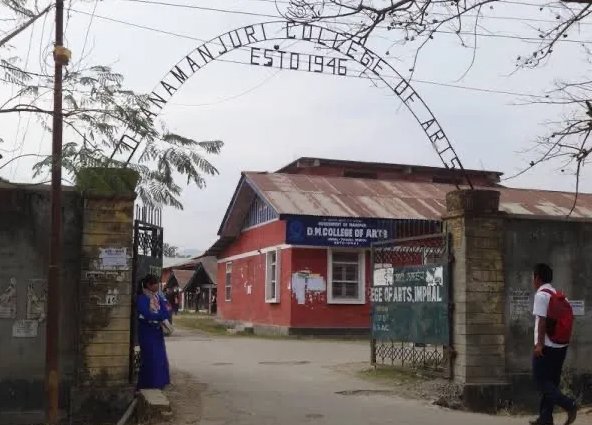IMPHAL, March 15(NNN): The success of India’s Act East Policy lies with the empowering of the people economically, socially and politically and building world class infrastructure in the Northeast region, said Dr Chinglen Maisnam, economics professor of Manipur University.
The professor was presenting a paper on “The India’s Act East Policy and its Impacts in Manipur” at a one-day media workshop (Vartalap) organised by the Press Information Bureau (PIB), Imphal, at the election counting hall of Thoubal DC office complex in Manipur on Wednesday.
The PIB, Imphal, organised the workshop as a part of the union ministry of information and broadcasting’s media outreach strategy that conceptualized to act as a bridge between the masses and the government by empowering journalists with authentic information about government schemes and policies.
Dr Chinglen said that it would not be possible to materialize the vision of Act East Policy without empowering the people economically, socially and politically and building world class infrastructure in the NE region and improving trade and commerce with the neighbours and east and south-east Asian countries.
At the same time, he said that it has acquired urgency when the trade and commerce with neighbours and east and south-east Asian countries have heightened and good prospects are waiting for the region.
The Modi-led government has now accorded high priority to India’s Look East Policy. Modi’s interest in the countries to its east is evident from the fact that it has undergone a paradigm shift in policy and is moving away from “Look East” approach to “Act East” mode, he observed in his paper.
India is not merely ‘looking east’ but is now ‘acting east’, thus, revising the title to ‘India’s Act-East Policy’, he also said.
“We have had enough of looking east. We now have ‘Act East Policy’ – a key component of my government’s foreign policy,” he quoted Prime Minister Modi who told the Indian diaspora during a community reception at the Kyung Hee University in the South Korean capital.
Through his visit, Modi affirmed that the Indian government has entered a new era of economic development, industrialization and trade.
The PM showcased the “Make in India” policy and his efforts to reduce the difficulties in doing business in the country. He invited business leaders and the diaspora to come and invest in India and promised the region’s political leaders that his government is ready to wrap up pending free-trade agreements with ASEAN and other countries, Dr Chinglen also said.
‘Make in India’ whose supposed objective is to revamp the dwindling manufacturing sector. PM Modi sees Make in India as a vital impetus for employment and growth, he also said.
The Northeastern region of India, however, faces a number of critical developmental challenges at the moment, he maintained.
“The question, therefore, is: will the poor and resource poor states of northeast which depend on Delhi for many of their basic needs be able to compete in the new open environment?” Dr Chinglen asked.
“Can it be a producing region or will it be reduced to status of consumers who will consume the other products, shall Act East Policy and Make in Northeast make the region a transit area for goods or worse a dumping ground, how it can be an instrument to develop the neglected, disturbed Northeastern States?” he further asked.
According to Dr Chingflen, it is all the more important for policy makers to understand the critical development issues and challenges of the region since India is now transforming its earlier ‘Look East’ policy into ‘Act East’ policy.
“In the absence of economic, social and physical infrastructures, mere opening up of the NE region to the global capital flow, trade and the much-hyped Act-East Policy and Make in Manipur will further increase regional divide and development disparities”, he observed.







